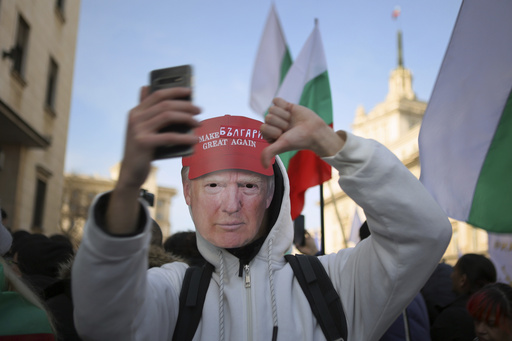
SOFIA, Bulgaria — In Bulgaria’s capital, police faced off against nationalist demonstrators on Saturday, who were adamantly opposed to the government’s plans to join the eurozone.
Approximately 1,000 individuals assembled outside the Sofia office of the European Commission, where tensions escalated as they began throwing red paint and firecrackers at the building. The situation intensified when at least one door was set on fire.
Emergency services including firefighters were quickly called to the scene, alongside police reinforcements that were deployed to control the crowd. Authorities reported that a number of demonstrators had been taken into custody and some police officers sustained injuries during the unrest.
This protest was organized by the nationalist group Vazrazhdane, which holds pro-Russia views. Initially, the gathering started earlier outside the Bulgarian National Bank. The protesters voiced their demand for the government’s resignation while waving national flags and chanting slogans like “No to the euro” and “Yes to the Bulgarian lev,” referring to the country’s existing currency.
Kostadin Kostadinov, the leader of Vazrazhdane, addressed the media, expressing that he was present to protect Bulgaria and its citizens. He emphasized that his party seeks a referendum to determine the nation’s potential entry into the eurozone.
“If there is no referendum, we will obstruct the National Assembly’s operations,” Kostadinov warned. His party is currently the third largest in the Bulgarian parliament.
Since joining the EU in 2007, Bulgaria has faced significant political turbulence. The newly formed government, which took office last month, has positioned the adoption of the euro as a major objective.
Nonetheless, there is skepticism among economists regarding Bulgaria’s readiness to transition to the eurozone. They argue that the country’s economic conditions do not meet the necessary criteria for such a shift.
Conversely, the government, along with other pro-European parties in parliament, believes that adopting the euro is crucial for deepening European integration, especially given the current geopolitical climate.
In response to these developments, pro-Russia nationalists are ramping up their efforts, utilizing disinformation campaigns to instill fear and divert public attention from the government’s objectives.

